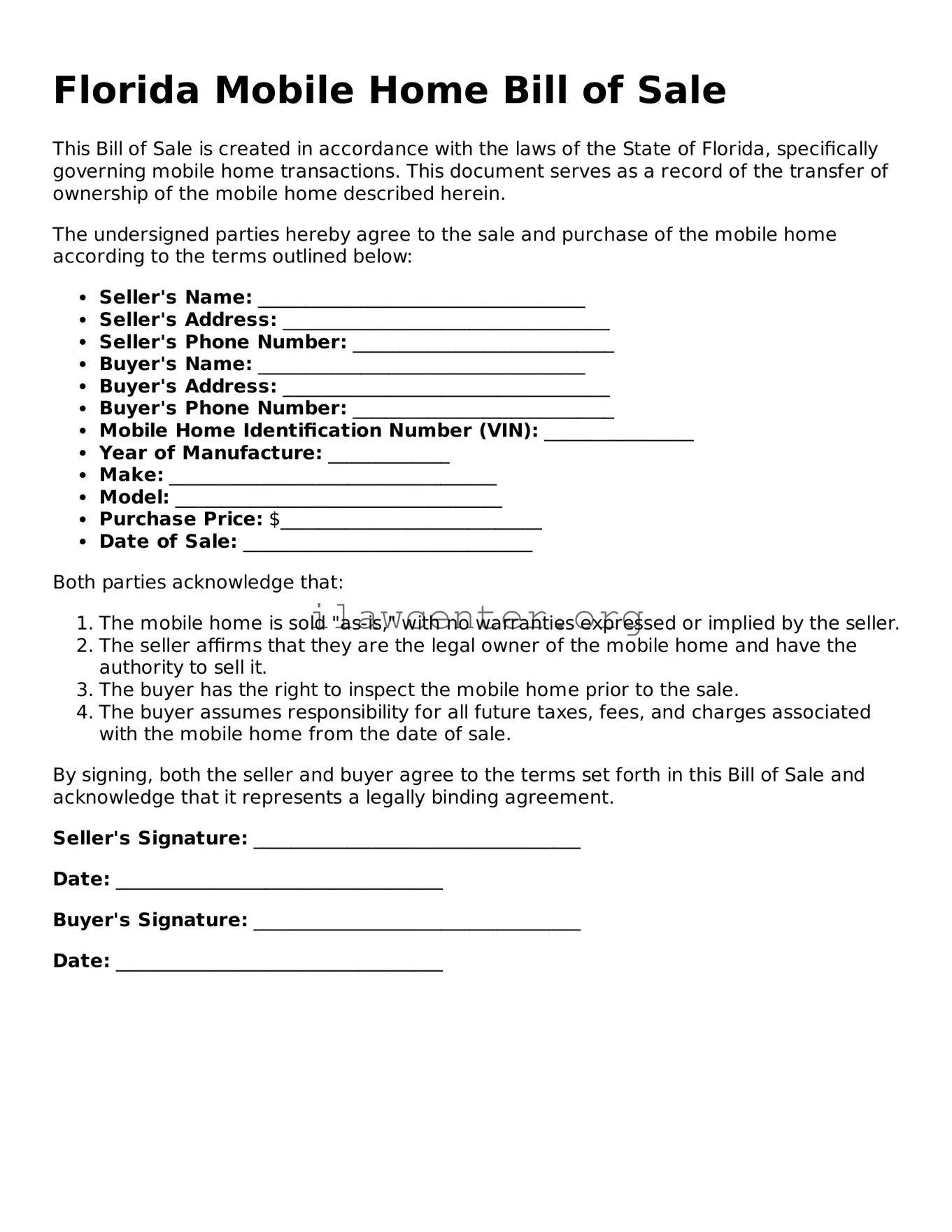Instructions on Utilizing Florida Mobile Home Bill of Sale
Filling out the Florida Mobile Home Bill of Sale form is an important step in completing the sale or transfer of ownership of a mobile home. Once the form is properly filled out, it can be submitted to the appropriate local authorities to finalize the sale.
- Obtain the Form: First, make sure you have the correct Florida Mobile Home Bill of Sale form. This can typically be downloaded from the state's official website or obtained from your local tax collector's office.
- Fill in Seller’s Information: Enter the seller's full name, address, and contact information at the top of the form. This identifies who is selling the mobile home.
- Fill in Buyer’s Information: Next, input the buyer's full name, address, and contact information. This section denotes who is purchasing the mobile home.
- Describe the Mobile Home: Include specific details about the mobile home being sold. This information should consist of the make, model, year, and Vehicle Identification Number (VIN) if applicable.
- Sale Price: Clearly state the total sale price of the mobile home. This should reflect the agreed amount between the buyer and seller.
- Inspection Clause: Indicate whether there was an inspection of the mobile home before the sale. If an inspection is relevant, specify the terms under which it was conducted or note it as "sold as-is."
- Signatures: Both the seller and buyer must sign and date the form. By signing, both parties acknowledge the terms of the sale.
- Witnesses: If required, have a witness sign the form to validate the transaction. Check local regulations to ensure compliance.
Once you have filled out the form following these steps, make sure to keep a copy for your records. It is also advisable to verify any additional requirements with your county tax collector’s office regarding the submission process and any fees involved.
